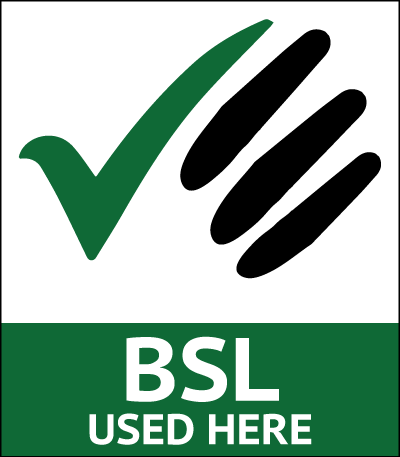Cwestiynau Cyffredin
Ymateb Brys i Larymau Tân Awtomatig mewn Eiddo Annomestig
Pam mae Gwasanaeth Tân ac Achub Gogledd Cymru (GTAGC) yn cyflwyno'r newid hwn?
Os cânt eu gosod a'u cynnal a'u cadw'n iawn, fe all systemau Larwm Tân Awtomatig (LTA) fod yn ffordd effeithiol o rybuddio pobl o dân mewn safleoedd annomestig. Fodd bynnag, Fodd bynnag, fe all camrybuddion o'r systemau hyn - yn enwedig os byddant yn digwydd droeon ar yr un safle - achosi costau ac anhwylustod i fusnesau a rhoi pobl mewn mwy o berygl.
Mae ymateb i alwadau brys sydd yn deillio o systemau LTA yn arwain at gostau sylweddol i Wasanaeth Tân ac Achub Gogledd Cymru yn ogystal â gwastraffu amser. Ar adeg pan mae Awdurdod Tân Ac Achub Gogledd Cymru yn wynebu heriau ariannol sylweddol mae hi'n anodd iawn i ni gyfiawnhau anfon injans tân i ymateb i alwadau gan systemau LTA a ninnau'n gwybod bod dros 96% ohonynt yn ddim byd mwy na chamrybuddion.
Ochr yn ochr â'r ystyriaethau ariannol, roedd ffactorau eraill ,yn ogystal, yr oedd yn rhaid i'r Awdurdod eu hystyried. Er enghraifft:
Mae anfon ymateb brys i alwadau diangen yn gostus ac yn codi nifer o bryderon:
Y lleihad yn nifer y criwiau gweithredol a oedd ar gael i ymateb i argyfyngau gwirioneddol - yn enwedig yr argyfyngau hynny y mae'n rhaid i'r Gwasanaeth eu mynychu yn ôl y gyfraith
- Y tarfu ar hyfforddiant a thasgau eraill y mae personél y Gwasanaeth yn ymgymryd â hwy;
- Yr effaith ar brif gyflogwyr ein diffoddwyr tân rhan amser sydd yn rhyddhau staff i ymateb i ddigwyddiadau yr ydym ni bron a bod yn sicr eu bod yn gamrybuddion;
- Y risg gynyddol i'r cyhoedd a'r criwiau gweithredol o ganlyniad i anfon ymateb golau glas i ddigwyddiadau yr ydym ni bron a bod yn sicr eu bod yn gamrybuddion;
- Y perygl y bydd rheolwyr a deiliaid ar safleoedd sydd gan systemau LTA annibynadwy neu heb eu cynnal a'u cadwn iawn yn rhoi'r gorau i ymateb i'r larwm oherwydd eu bod yn tybio ei fod yn gamrybudd arall;
Pryd fydd y trefniadau newydd yn dod yn weithredol?
Bydd GTAGC yn rhoi'r trefniadau newydd ar waith ar y 1af Ebrill 2015.
A oes gan Wasanaeth Tân ac Achub Gogledd Cymru ddyletswydd gyfreithiol i fynychu galwadau LTA?
Yn ôl y gyfraith, mae'n rhaid i Awdurdodau ddarparu ar gyfer diffodd tanau ac amddiffyn bywyd ac eiddo os bydd achosion o danau. Mae'n rhaid iddynt hefyd wneud trefniadau i ddelio gyda galwadau am gymorth pan fydd tân. Fodd bynnag nid oes arnynt ddyletswydd gyfreithiol ymateb i alwadau yn deillio o systemau LTA er mwyn sefydlu a oes tân ai peidio.
Mewn safleoedd annomestig sydd wedi eu cynnwys yng ngorchymyn Diwygio Rheoleiddio (Diogelwch Tân) 2005, mae'n rhaid i'r gweithiwr, perchennog neu rywun arall sydd yn gyfrifol am y safle ( y 'person cyfrifol' dynodedig) sicrhau bod y safle yn ddiogel ar gyfer ei ddeiliad os bydd tân cyn belled ag y bo hynny'n rhesymol ymarferol. Mae' trefniadau yn cynnwys y camau y dylid eu cymryd os bydd y system LTA yn seinio rhybudd.
Mae unrhyw un sydd yn rhoi neu achosi camrybudd o dân yn cyflawni trosedd ac fe allant wynebu dirwy neu garchar.
Pam na chafwyd ymgynghoriad ar hyn?
Nid yw'r newid hwn yn cael ei gyflwyno ar chwarae bach. Mae camrybuddion gwastraffus a pheryglus o systemau LTA wedi bod yn broblem i awdurdodau tân ac achub ar draws y DU ac i fusnesau ers nifer o flynyddoedd.
Mae nifer o ddulliau a gweithdrefnau gwahanol wedi cael eu hystyried i geisio lleihau camrybuddion gan systemau LTA heb gyfaddawdu ar ragofalon tân. Yn raddol, mae mwy a mwy o awdurdodau tân ac achub yn y DU wedi mabwysiadu gweithdrefnau newydd er mwyn newid y modd y maent yn ymateb i alwadau LTA yn hytrach na pharhau i anfon criwiau tân sawl gwaith y diwrnod i ddigwyddiadau y maent yn amau'n gryf eu bod yn ddim byd o gwbl i boeni yn eu cylch.
Mae staff Ystafell Reoli Gwasanaeth Tân ac Achub Gogledd Cymru, fel rhan o'u harferion trin galwadau, wedi dechrau cwestiynau galwadau LTA, sydd wedi ein helpu i leihau nifer y digwyddiadau yr ydym ni'n eu mynychu. Mewn gwirionedd dydy'r penderfyniad hwn gan Awdurdod Tan ac Achub Gogledd Cymru yn ddim byd mwy nag estyniad o'r gweithdrefnau presennol gyda'r bwriad o anfon injans tân i ddigwyddiadau nad ydynt yn bodoli yn llai amlach.
Bydd Gwasanaeth Tân ac Achub Gogledd Cymru yn hybu'r trefniadau newydd yn y wasg ac yn y cyfryngau cymdeithasol, ymhlith grwpiau busnes a thrwy ysgrifennu at nifer o randdeiliaid perthnasol.
Beth os nad ydy fy asesiad risgiau tân yn delio gyda'r newid hwn?
Y mae dyletswydd gyfreithiol ar y Person Cyfrifol yn ôl Gorchymyn Diwygio Rheoleiddio (Diogelwch Tân) 2005 i sicrhau bod rhagofalon tân addas yn eu lle, yn cynnwys trefniadau diogelwch tân a hyfforddi staff, a bod camau addas a digonol yn cael eu cymryd os bydd tân.
Fe ddaeth y ddeddfwriaeth yma'n weithredol ar 1af Hydref 2006 ac felly mae safleoedd wedi gwybod ers tro bod yn rhaid iddynt sicrhau bod ganddynt drefniadau addas ar waith i ddiogelu pawb ar y safle pe byddai'r larwm yn seinio rhybudd. Ni ddylai'r trefniadau diogelwch tân hyn ddibynnu ar bresenoldeb y gwasanaeth tân.
A fydd y trefniadau newydd hyn yn peryglu pobl ar y safle?
Mae Gwasanaeth Tân ac Achub Gogledd Cymru bob amser yn ymateb i danau. Ni fyddwn yn peryglu bywydau drwy beidio ag ymateb i gamrybuddion, oherwydd mai camrybuddion ydynt ac oherwydd nad oes tân. Yn wir rydym yn rhoi pobl mewn argyfyngau gwirioneddol mewn mwy o berygl drwy barhau i ymateb i'r camrybuddion hyn oherwydd bod ein hadnoddau prin yn cael eu defnyddio yn rhywle arall.
Rydym yn cydnabod bod nifer o safleoedd yn cyflawni swyddogaethau pwysig yn y gymuned ac fe ddylech gydnabod hyn yn eich cynllun parhad busnes. Os oes gennych drefniadau da ar gyfer rheoli diogelwch tân a chynllun parhad busnes addas ar gyfer y safle mae'r tebygolrwydd na fydd y gwasanaeth tân yn cael gwybod am dân ar y safle yn isel iawn.
Rydym ni'n cyflogi canolfan monitro galwadau felly pam bod rhaid i ni gadarnhau tân?
Mae gan GTAGC ystafell reoli sydd yn delio gyda galwadau tân yng Ngogledd Cymru. Mae cwmnïau monitor larymau yn gweithredu fel cwmnïau trydydd parti sydd yn rhoi gwybod i drydydd parti megis yr ystafell reoli tân bod y larwm wedi seinio. Nid yw'r canolfannau yn archwilio'r safle i gadarnhau tân gwirioneddol neu hyd yn oed a oes tân wedi ei amau cyn hysbysu'r Gwasanaeth Tân ac Achub.
Roeddem ni ar ddeall y dylem ni alw'r gwasanaeth tân bob tro y bydd y larwm yn seinio
Fe ddylech bob amser alw 999 pan fydd tân. Ein rôl yw ymateb i argyfyngau yn cynnwys tanau.
Nod larymau tân yw hysbysu pobl yn yr adeilad o dân a rhoi cyfle i bawb fynd allan o'r adeilad (yn ddibynnol ar eich polisi ar gyfer gwacau'r adeilad )i wneud yn siwr bod pawb ar y safle yn ddiogel. Nod y larwm mwg yw rhybuddio preswylwyr o dân posibl ac nid galw'r gwasanaeth tân.
A fyddwn yn rhoi ein hunain mewn perygl wrth ymchwilio i weld beth sydd wedi achosi i'r larwm seinio?
Nid yw Gwasanaeth Tân ac Achub Gogledd Cymru yn gofyn i unrhyw un roi eu hunain mewn perygl.
Fe ddylai pawb wybod sut i ymateb yn ddiogel i seiniadau gan larymau mwg - drwy eu hanwybyddu neu dybio bod y gwasanaeth tân ac achub ar ei ffordd gallwch roi pobl mewn perygl.
Os oes unrhyw amheuaeth o dân - megis arogl llosgi neu bresenoldeb mwg- yna galwch 999 ar unwaith a rhowch wybod i'r Gwasanaeth Tân ac Achub am y tân. Ceir rhagor o wybodaeth ar ein gwefan ynglyn â sut i ymchwilio i larymau tân sydd yn seinio.
Beth allwn ni ei wneud i atal neu leihau camrybuddion gan systemau LTA?
Mae larymau tân wedi eu dylunio i seinio pan fydd tân ond fe allant seinio am resymau eraill ac felly mae'n bwysig bod y safle wedi ei reoli'n dda. Drwy roi gweithdrefnau rheoli da ar waith ac yn hyfforddi staff yn unol â hynny fe allwch sefydlu pam bod y larwm wedi seinio a galw'r gwasanaeth tân dim ond mewn achos o dân. Fe fydd hyn yn cyflymu'r broses o ddychwelyd yn ôl i'ch busnes/gwasanaeth a'ch galluogi i fod yn fwy cynhyrchiol.
Y mae sawl ffordd o atal camrybuddion yn cynnwys;
- Gosod systemau larwm tân addas ar y safle e.e. y synwyryddion cywir yn y mannau cywir.
- Cynnal a chadw a phrofi'ch system larwm yn unol â'r Safon Brydeinig addas BS5339:1
- Cau drysau pam fyddwch yn coginio neu'n glanhau gyda stêm.
Pwy sy'n gyfrifol am ddweud bod y rhybudd ar ben wedi i ni ymchwilio pam bod y LTA wedi seinio?
O dan Orchymyn Diwygio Rheoleiddio (Diogelwch Tân) 2005 fe ddylai'ch staff fod wedi eu hyfforddi ac fe ddylai gweithdrefnau addas fod ar waith er mwyn eu galluogi i ymchwilio pam bod y LTA wedi seinio rhybudd a chadarnhau nad oes tân ar y safle.
A fydd y ffaith na fydd Gwasanaeth Tân ac Achub Gogledd Cymru yn ymateb i gamrybuddion yn effeithio ar ein polisi yswiriant?
Cysylltwch â'ch cwmni yswiriant i drafod hyn ond cofiwch y bydd y Gwasanaeth Tân ac Achub ymateb os bydd tân wedi ei gadarnhau.

